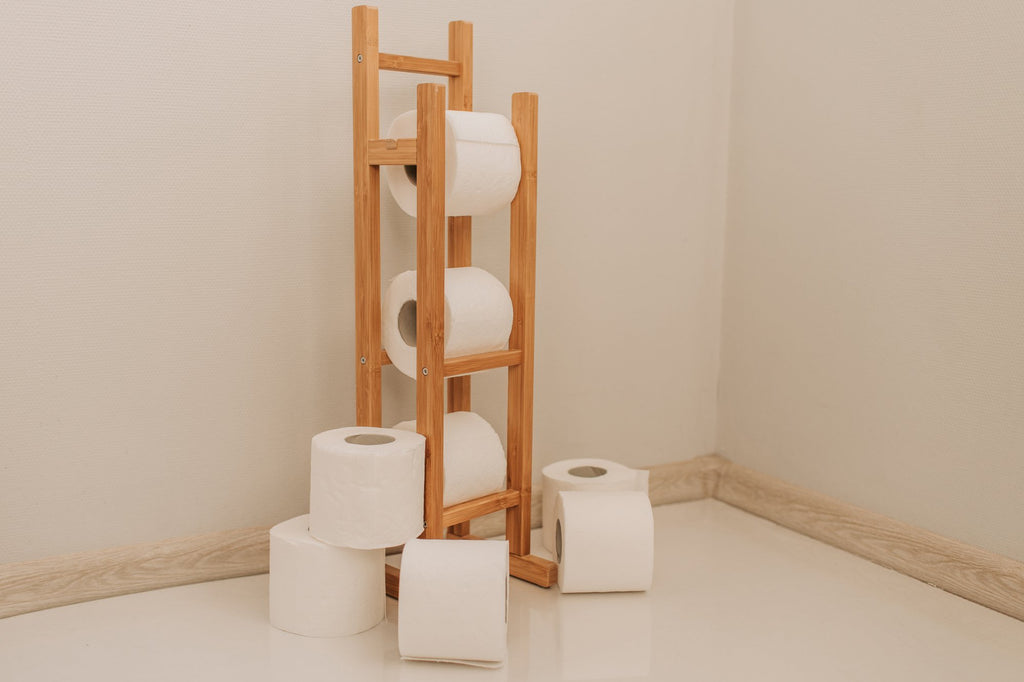
TLDR
When it comes to eco-friendly alternatives, bamboo products – particularly bamboo toilet paper – are a hot topic of conversation. Eco-conscious consumers have so many great questions about this revolutionary product:
- Is bamboo toilet paper eco-friendly?
- Does bamboo toilet paper break down?
- Is bamboo toilet paper septic safe?
- Is bamboo toilet paper better than regular?

There are many benefits to using bamboo toilet paper instead of traditional toilet paper types. Understanding them will allow you to make informed buying decisions and choose the best toilet paper for yourself, your family, and the environment.
Here is everything you need to know about bamboo toilet paper!
How Is Bamboo Toilet Paper Made?
You may be surprised at how simple and straightforward the process of making bamboo toilet paper is. In fact, both bamboo and regular toilet paper undergo similar manufacturing processes – but as you’d expect, bamboo paper products use bamboo instead of wood chips or recycled paper.
First, manufacturers break down the bamboo plant into fibers and add the fibers to a mixture that turns them into a bamboo pulp. Once the fibers have been turned into pulp, they soak, press, and form the pulp into the actual paper.
After that, they dry out the long sheets of paper until they have reached the appropriate moisture level. At this time, the manufacturers will roll the paper into long logs of toilet paper, cut them into smaller rolls, and packaged the rolls to be sold.
In the end, whether from virgin tree pulp or bamboo pulp, the toilet paper production process is mostly the same.
Is Bamboo Toilet Paper Eco-Friendly?
Generally speaking, bamboo products are some of the most eco-friendly products around. Not only are they made of sustainable materials, but they break down fully and quickly, as well. Bamboo toilet paper is no different.
So, if you’re wondering whether bamboo toilet paper is eco-friendly, the answer is yes, it most certainly is. Bamboo is a renewable resource that also happens to be remarkably soft and strong. As a result of their versatility and renewability, bamboo products have a much smaller environmental impact.
A Soft & Strong Material
Bamboo is an up-and-coming eco-friendly building material. Due to its ability to make products that are incredibly soft, as well as surprisingly robust, bamboo is the material of choice for a range of products from home decor and clothing to cutting boards and guitars.
Bamboo is so soft, in fact, that we use the plant to create the luxe materials that many of us use in what modern society considers to be our most sacred rooms: the bedroom and – of course – the bathroom. Bamboo sheets, robes, and toilet paper have all become renowned for their softness and durability.
You may be surprised to learn that the same material used to make your softest sheets is often used to build furniture and in large-scale construction, too. In fact, studies have discovered that bamboo is a more resilient and flexible construction material than wood, concrete, and even steel.
Consequently, bamboo is becoming a preferred material for protection against earthquakes.

The bamboo plant is so sturdy thanks to its short sections separated by rings. The early Chinese navy even used the plant’s design as inspiration when building the bulkheads to separate areas of their ships. As a result, ships were stronger and less prone to sinking.
A Renewable Resource
Bamboo is a highly renewable resource that grows profusely throughout many parts of the world. For instance, bamboo has been growing in Southeast Asia for millions of years. You can even still find native bamboo plants in parts of South America and the United States.
Bamboo is not simply a renewable resource because it can be found in so many places. Rather, bamboo is so ubiquitous because of how highly renewable it is. Bamboo is the fastest-growing plant in the world and can grow up to 35 inches per day or 1.5 inches per hour!
Because it grows so quickly, bamboo can be replenished immediately after being used. As a result, the bamboo population can easily be maintained to avoid overconsumption.
Bamboo is surely an eco-friendly option for making any type of product. The fact that it’s both soft and strong, as well as highly renewable, makes bamboo a premier toilet paper material.
Does Bamboo Toilet Paper Break Down?
Many eco-conscious consumers are curious about how well bamboo toilet paper actually breaks down. They are, understandably, not only conscious of toilet paper’s effect on the environment but also its effect on their plumbing.
Bamboo Toilet Paper in the Pipes
Oftentimes, we flush items – like paper towels, wipes, and small toys – down the toilet that simply don’t break up, thereby clogging toilets and backing up lines. Clogged pipes can affect all of the plumbing in the house, which is especially problematic if you have a septic tank.
Unfortunately, toilet paper can clog pipes, as well. Using bath tissue that’s too thick, or simply using too much, can easily cause a headache-inducing clog. To avoid the extra plumbing costs, many people will opt for low-quality one-ply toilet paper. But before reaching for what feels like dollar store sandpaper, consider a less painful alternative.
Is bamboo toilet paper septic safe? Yes! Bamboo toilet paper makes using the bathroom both comfortable and easy on the septic tank. In addition to being strong (and soft) enough for use, bamboo toilet tissue also effortlessly breaks down in water. This means that water will freely flow through your pipes without clumps of toilet paper backing them up, making it septic safe toilet paper. It’s no wonder that some plumbers think bamboo toilet paper is one of the best toilet papers for plumbing.
Bamboo Toilet Paper in the Environment
All toilet paper will eventually break down. Glass bottles will eventually break down, too, although according to BBC Science Focus, they make take about a million years. While traditional toilet paper will break down in less time, it can still take several years to fully decompose.
Bamboo products, on the other hand, breaks down significantly faster . For instance, Mable produces a sturdy bamboo toothbrush that is meant to be used for about 3 to 4 months. At the end of a toothbrush’s lifespan, the user can simply pull out the bristles and toss the brush into their compost bin.

So, does bamboo toilet paper break down?
At the end of the day, yes. Overall, bamboo toilet paper breaks down much better than traditional – and even recycled – toilet paper. Like a bamboo toothbrush, a thin sheet of bamboo toilet paper will promptly and naturally decompose, leaving no trace of existence – on the planet or in your pipes.
Is Bamboo Toilet Paper Better Than Regular?
You may still be wondering, “Is bamboo toilet paper really that much better than regular?” After all, that is the big question. The short answer is yes, absolutely.
Across the board, bamboo toilet paper outperforms other toilet paper options. When compared to bath tissue made out of recycled pulp and virgin pulp, bamboo tops them both.
In terms of softness, recycled toilet paper tends to be the least soft. On the other hand, bamboo toilet paper and virgin toilet paper are neck and neck as the softest. Bamboo provides both soft and thick toilet paper, which gives you the most comfort and all the absorbency you need.
As far has eco-friendliness goes, bamboo toilet paper and 100% recycled toilet paper – as opposed to only 30% or 40% recycled paper – come out on top. Virgin toilet paper comes in at a distant third.
What gives bamboo the edge in eco-friendliness is the plant itself. Bamboo is a highly renewable resource that grows quickly, takes up less space, and uses no fertilizers or pesticides.
The biggest consumer concern, though, is likely the price. Price is what will ultimately determine whether or not someone will buy a product. While virgin toilet paper is generally the cheapest, consumers can find both recycled and bamboo toilet paper at competitive prices.
In fact, Reel Paper offers a box of 24 rolls of sustainable, bamboo toilet tissue paper for less than $33! Or order our bulk toilet paper and enjoy even more savings.
Is Bamboo Toilet Paper for You?
Anyone thinking about switching to a more eco-friendly lifestyle should consider swapping out their traditional (or recycled) bathroom tissue for bamboo bathroom tissue. Overall, bamboo toilet paper is soft and strong yet breaks down well after use – so well so, in fact, that you should never again have to deal with a clogged pipe or septic system.
Furthermore, bamboo is a highly renewable material that grows rapidly without a need for excessive space or the use of fertilizers or pesticides. Since consistent use has such a low environmental impact, bamboo is the perfect material to use for a high-volume staple like toilet paper.
Bamboo toilet paper is kind to our planet, our wallets, and our bottoms, but it’s not necessarily for everyone. By doing your research and learning about bamboo and bamboo toilet paper, you have the power to choose the right paper for your lifestyle and make the best decision for yourself and your family.
Interested in learning more about bamboo toilet paper? Sign up for our newsletter!
Reel Paper offers wide range of sustainable paper products from bulk toilet paper, bamboo paper towels, recycled paper towels and more. Choose to change for a better world. Find our bamboo toilet paper near you.
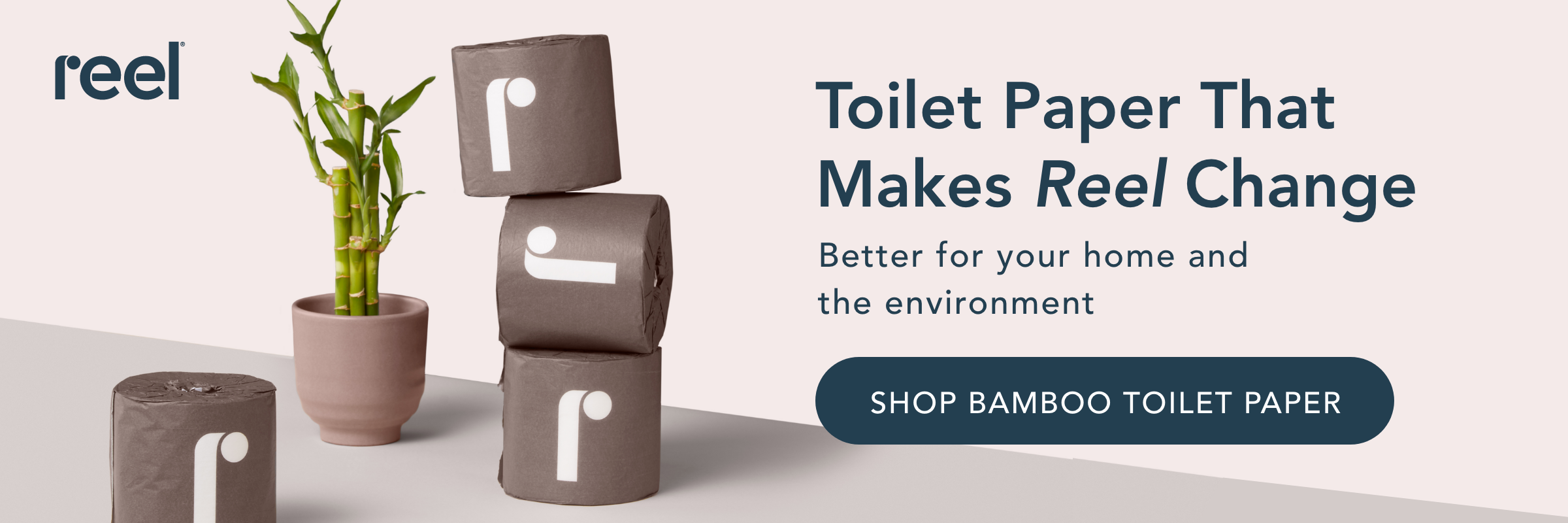
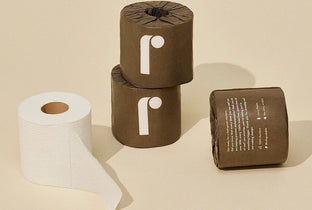
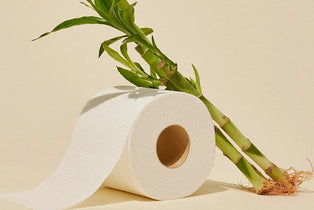
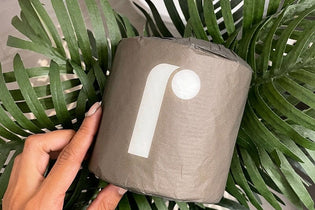
6 comments
Bonnie Klingenberg on